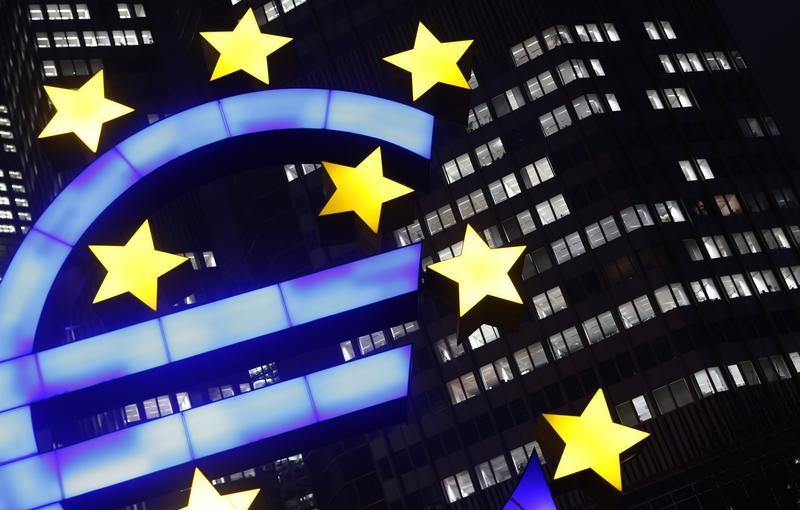BRUSSELS (Reuters) - Falling prices of fuel and heating oil as well as telecommunications kept euro zone inflation low in November, the European Union's statistics office said on Wednesday, confirming its earlier flash estimate.
Eurostat said consumer prices in the 18 countries sharing the euro fell 0.2 percent month-on-month in November for a 0.3 percent year-on-year rise, as expected by markets.
Eurostat data showed that falling prices of fuel for transport had the biggest downward pull on the year-on-year number, subtracting 0.22 percentage point from the end result.
Cheaper telecoms services and heating oil both subtracted 0.09 percentage points each. Prices grew in restaurants and cafes, adding 0.09 percentage points to the end number, higher rents added 0.08 points and more expensive tobacco added 0.06 points.
Without the volatile prices of energy and unprocessed food, or what the European Central Bank called "core inflation", prices fell 0.1 percent month-on-month in November for a 0.7 percent year-on-year rise -- the same as in October.
The ECB wants to keep headline inflation below, but close to 2 percent and is concerned that a long period of very low inflation like now could turn in to deflation, when consumer delay purchases because they wait for goods to become cheaper.

To avoid that, the ECB is considering launching purchases of government bonds next year to inject more money into the economy and make prices rise faster.
(Reporting By Jan Strupczewski; editing by Philip Blenkinsop)